Does your dog not have much energy?
Have you seen that your dog has gained weight for no apparent reason?
It could be more than just being lazy or eating too much. Hypothyroidism, a condition in which the thyroid doesn’t work properly and is common in dogs, could be making your pet tired and causing their waist to get bigger. Through this blog post, we will learn more about hypothyroidism and how it can affect the health of your beloved dog. You’re about to find out why your dog’s tail is wagging so slowly and how you can get them back to being active.
Hypothyroidism happens when the thyroid gland in the neck doesn’t make enough thyroid hormone. This hormone is very important for keeping your dog’s energy and metabolism in check. Their body processes slow down when they don’t get enough of it, which can show up as tiredness, weight gain, or even changes in behavior.
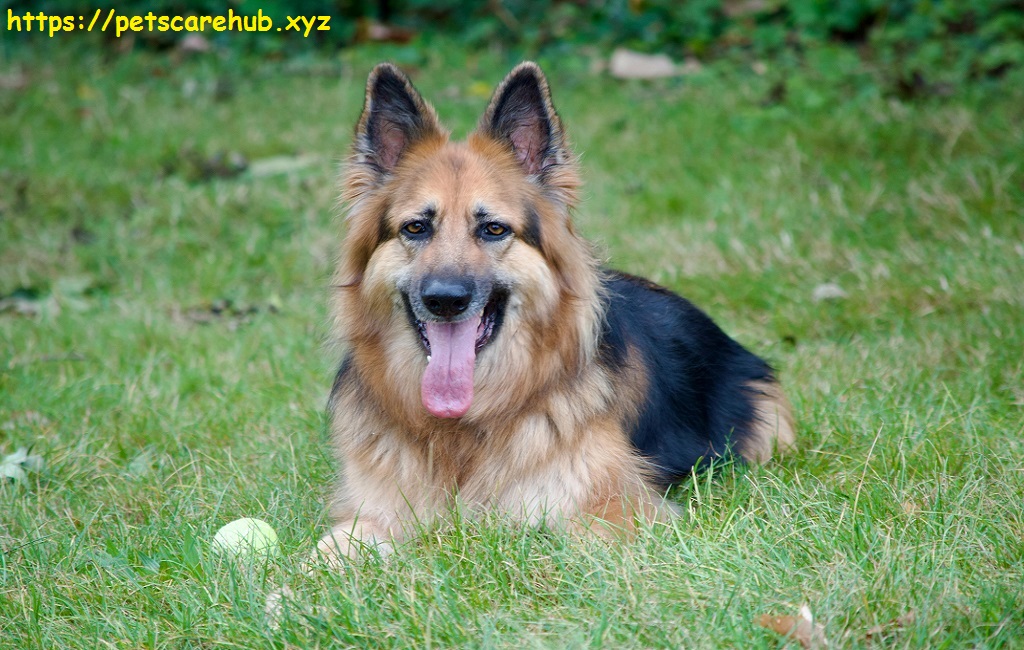
You might want to check your pet’s thyroid to see if it’s underactive if you notice that they sleep more than usual or lose interest in things they used to enjoy. Also, dogs with hypothyroidism often gain weight, even when they eat well and exercise regularly. Because their metabolism is slower, it’s hard for them to burn calories efficiently, so they store extra fat.
However, why do dogs get hypothyroidism? There are many reasons for this, ranging from genes to medicines or illnesses. Some dog breeds, like Golden Retrievers and Doberman Pinschers, are more likely to get this condition. Also, some health problems, like cancer or autoimmune diseases, can make the thyroid gland work less well.
Sadly, it can be hard to tell if a dog has hypothyroidism because its symptoms are similar to those of other health problems. But there are some important things to look out for that could mean you have a thyroid problem. A slow heart rate, hair loss, and skin that is dry and flaky are some of these. If you notice any of these signs in your dog, you should take them to the vet right away so they can properly diagnose and treat the problem.
Hypothyroidism can’t be cured, but it can be well controlled with medicine and changes to how you live. Once the problem is known, your vet may give you synthetic thyroid hormones to keep your dog’s hormone levels in check. Also, sticking to a regular exercise routine and giving them a healthy diet can help them control their weight and feel better overall.
Hypothyroidism is a common but often overlooked health problem in dogs that can have a big effect on their quality of life. People who own pets need to keep a close eye on any changes in their furry friend’s behavior or appearance and take them to the vet if they need it. When we know the symptoms and causes of hypothyroidism, we can make sure that our pets get the right care and live happy, healthy lives without any problems.
A Brief Look at Hypothyroidism in Dogs:
Dogs often have an endocrine disorder called hypothyroidism. It happens when the thyroid gland in the neck doesn’t make enough thyroid hormone. The metabolism and other important body functions slow down because of this.
For your dog’s metabolism to work properly, which turns food into energy, thyroid hormones are very important. Your dog’s metabolism slows down when there isn’t enough thyroid hormone. This makes them tired and makes them gain weight.
Hypothyroidism has these causes:
Hypothyroidism can happen in dogs for a number of different reasons. Lymphocytic thyroiditis is an autoimmune disease that is one of the most common reasons for this. When this happens, the immune system attacks its own cells in the thyroid gland, which damages and swells the gland.
Idiopathic atrophy is another cause. This is when the thyroid gland gets worse for no clear reason. Birth defects or cancer of the thyroid gland are two other possible causes.
Breeds that is likely to get hypothyroidism:
Hypothyroidism can happen to any dog breed, but some breeds are more likely to get it than others. Some of these dogs are Irish Setters, Golden Retrievers, Labrador Retrievers, and Doberman Pinschers.
Notes and signs:
Hypothyroidism can cause a wide range of symptoms, but some of the most common ones are tiredness, weight gain without a change in appetite, skin infections, muscle weakness, hair loss or thinning coat (especially on the tail and back), and less activity. Some dogs may also show changes in their behavior, like being depressed or mentally dull.
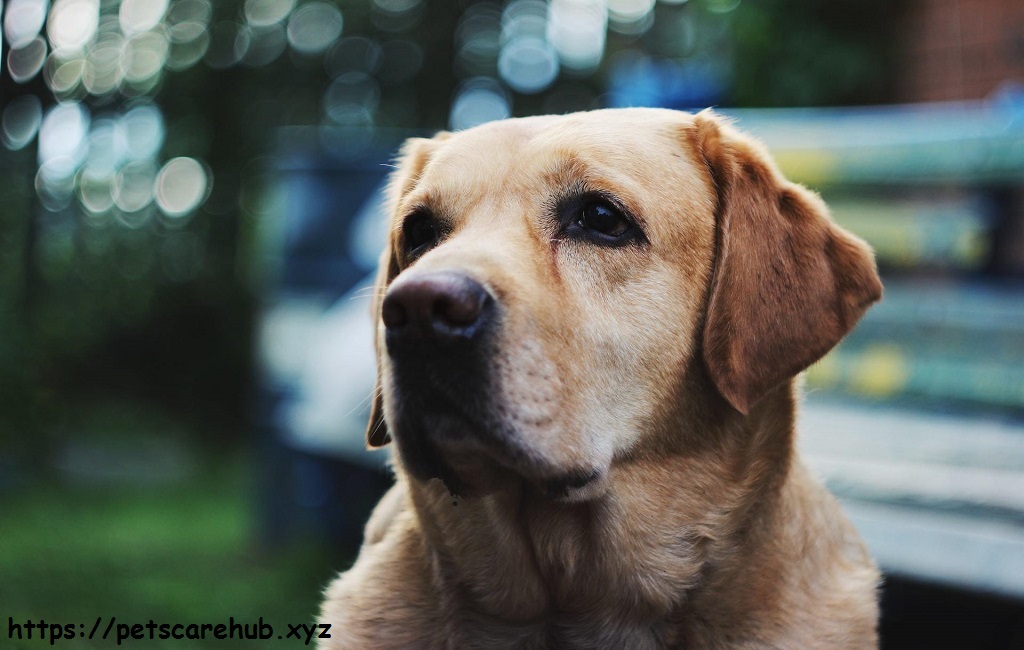
Figure out:
In order to diagnose hypothyroidism, a veterinarian will do a physical exam and blood tests. Blood tests check the levels of thyroid hormones and other hormones that may be changed by this condition. Sometimes, it may also be best to get an ultrasound of the thyroid gland.
How to treat hypothyroidism:
Hormone replacement therapy is used to treat hypothyroidism for life. Oral synthetic thyroid hormone drugs are used to replace the missing hormones and control symptoms. To keep an eye on your dog’s hormone levels and change the medicine dosage as needed, you need to take him in for regular checkups and blood work.
If your dog already has any health problems that are making their hypothyroidism worse, you will need to take care of those too.
How to stop:
Idiopathic atrophy and autoimmune thyroiditis have no known cause, so it is hard to keep dogs from getting hypothyroidism. On the other hand, getting regular checkups can help find any problems early on, so they can be treated and managed quickly.
Conclusion:
Dogs often have an endocrine disorder called hypothyroidism, which can hurt their health and quality of life. Most dogs with hypothyroidism can live long and happy lives if they get the right diagnosis and care. If you think your dog might have this condition, you should take him or her to the vet to get checked out and talk about treatment options.
Learning About the Thyroid Gland and What It Does
An important part of the body that controls many functions is the thyroid gland, a small butterfly-shaped organ in the neck. This part of the body makes hormones that keep the metabolism going, which is the process of turning food into energy. Triiodothyronine (T3) and thyroxine (T4) are the two most important hormones that the thyroid gland makes.
They control how fast or slow our cells burn energy from food, which is one of their main jobs. This affects many bodily functions, including heart rate, digestion, and brain development, and decides how well our organs and tissues work. The thyroid gland is also very important for keeping a dog’s skin and coat healthy and for making sure their reproductive system works right.
When a person has hypothyroidism, also called an underactive thyroid, their thyroid gland doesn’t make enough hormones to keep their metabolism running at its best. This could hurt your dog’s health in many ways. Some common symptoms are gaining weight even though you haven’t changed what you eat or how much you exercise, feeling too tired or sluggish, losing hair or having bad hair coats, having dry skin, and getting infections often.
To find and treat this condition early on, you need to know how it affects your dog’s health. It is thought that up to 80% of cases of hypothyroidism are not diagnosed because pet owners don’t know enough about it.

Hypothyroidism can be caused by a number of things, including birth defects, thyroid tumors, or an immune system response. Some dog breeds, like Golden Retrievers, Doberman Pinschers, and Irish Setters, are more likely to get hypothyroidism because of their genes.
Hyperthyroidism, on the other hand, is when the thyroid gland makes too many of the hormones T3 and T4. This condition happens more often in cats than in dogs, and it can make them lose weight even though they eat more, are restless and irritable, have a fast heart rate, and urinate and drink more. It is often caused by a thyroid tumor or a thyroid gland that works too hard.
In either case, it’s important to find the problem early and treat it properly to protect your dog’s health. If you think your dog might be having problems with their thyroid, you should take them to the vet so they can properly diagnose and treat the problem. For both hypothyroidism and hyperthyroidism, you can take medicine to control your hormone levels or have surgery to remove any tumors or damaged parts of your thyroid gland.
To sum up, knowing how the thyroid gland works and the possible signs that your dog might have a thyroid problem can help protect their health and quality of life. Taking your pet to the vet for regular checkups can also help find problems early on so they can be cared for properly.
Signs that your dog has hypothyroidism
Hypothyroidism is a common endocrine disorder in dogs that happens when their thyroid gland doesn’t make enough hormones to keep their metabolism in check. This can cause a lot of different symptoms that can have a big effect on your dog’s health and well-being as a whole. We will talk about some of the most common signs that your dog has hypothyroidism in this section.
- Weight Gain: One of the first things dog owners may notice is that their dog is putting on weight quickly, even though they aren’t eating more. A thyroid that doesn’t work properly slows down the metabolism, which makes it hard for the body to break down food and burn calories.
- Fatigue and lack of energy: Dogs with hypothyroidism often have less energy and become more and more tired. They might always look tired and lose interest in things they used to enjoy. This happens because the thyroid hormone is very important for controlling how cells make energy.
- Changes in the Coat and Skin: Besides keeping the skin and coat healthy, thyroid hormones are also very important for dogs. Because of this, changes in your dog’s fur or skin texture are one of the most obvious signs of hypothyroidism. They might lose their hair, have dry skin, shed a lot, or have a dull coat.
- Inability to Handle Cold: Dogs with hypothyroidism often have trouble keeping their body temperature at the right level because their metabolism is slower. They are more likely to get sick when it’s cold than usual, so you may see them staying close to heaters or under blankets to stay warm.
- Weight Loss or Muscle Weakness: Another important sign of hypothyroidism is muscle loss or weakness. This takes place because the thyroid hormone controls the body’s production of proteins. Not having enough of this hormone can cause muscles to break down, making you weak and unable to move around as easily.
- Problems with digestion: Dogs with hypothyroidism may also have changes in the way they go to the bathroom. Because their metabolism is slower, they may become constipated and have trouble going to the bathroom. On the other hand, some dogs may have diarrhea, which could also be accompanied by vomiting and loss of appetite.
- Changes in Behavior: An imbalance in your dog’s hormones can affect his or her mood and behavior. Because of this, dogs with hypothyroidism may act in strange ways, like being angry, anxious, depressed, or making a lot of noise.
If you notice any of these signs in your dog, you should take them to the vet right away so they can properly diagnose and treat the problem. Hypothyroidism can’t be cured, but it can be managed well with medicine and changes to your dog’s lifestyle to make his or her life better.
Reasons Why Dogs Often Have Hypothyroidism
Hypothyroidism is a common endocrine disorder in dogs that happens when the thyroid gland doesn’t make enough thyroid hormone. The metabolism, growth, and development of dogs are controlled by thyroid hormones. There are many health problems that can happen when there aren’t enough of these hormones, including tiredness, weight gain, skin problems, and more.
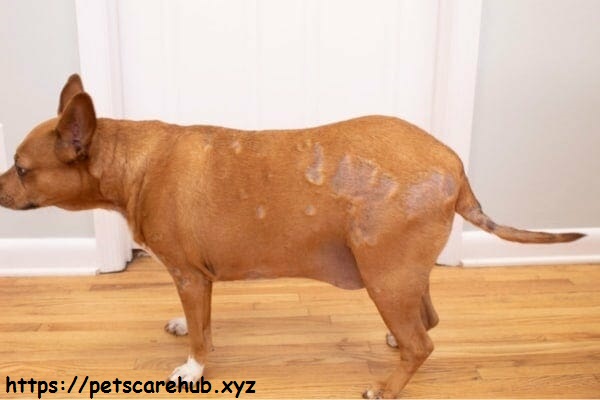
This part will talk about some of the most common reasons why dogs get hypothyroidism. This will help you learn more about this condition and what might cause it.
- Genetics
Genetics is one of the main reasons why dogs get hypothyroidism. Certain breeds are more prone to developing this condition due to their genetic makeup. Breeds that are commonly affected include Golden Retrievers, Doberman Pinschers, Irish Setters, Dachshunds, Cocker Spaniels, and Miniature Schnauzers.
- Autoimmune disorders
Autoimmune disorders occur when the immune system mistakenly attacks healthy cells in the body. In the case of hypothyroidism in dogs, it can mistakenly target and destroy cells within the thyroid gland leading to an inadequate production of thyroid hormones.
- Iodine deficiency
Iodine is an essential mineral required for proper thyroid function as it plays a vital role in producing thyroid hormones. If your dog’s diet lacks sufficient amounts of iodine or if they have trouble absorbing it from their food, it could lead to hypothyroidism over time.
- Surgical removal of the thyroid gland
In some cases, dogs may develop hypothyroidism after undergoing surgery to remove their thyroid gland. This procedure is typically performed to treat other conditions, such as thyroid cancer or an enlarged thyroid gland. However, the removal of the gland results in a permanent loss of thyroid function, leading to hypothyroidism.
- Inflammation of the thyroid gland
Inflammation of the thyroid gland or thyroiditis can also contribute to hypothyroidism in dogs. This condition can be caused by infection, radiation therapy, or certain medications.
- Medications
Certain medications can interfere with the production and function of thyroid hormones in dogs, leading to hypothyroidism. These may include anti-inflammatory drugs, chemotherapy drugs, and anticonvulsants.
- Environmental factors
Exposure to certain environmental toxins can also play a role in triggering hypothyroidism in dogs. These may include pesticides, flame retardants, and chemicals found in plastic products.
It’s essential to note that while these are common causes of hypothyroidism in dogs, there may be other underlying factors contributing to this condition that your veterinarian will need to investigate further. If you suspect your dog may have hypothyroidism, it ‘s important to seek veterinary attention for proper diagnosis and treatment.
Diagnosis and Treatment Options for Hypothyroidism
If you suspect that your dog may have hypothyroidism, it is important to take them to a veterinarian for a proper diagnosis. The first step in diagnosing hypothyroidism is a thorough physical examination and review of your dog’s medical history. Your veterinarian may also perform blood tests to measure the levels of thyroid hormones and other related hormones such as T4, T3, and TSH.
Once a diagnosis of hypothyroidism has been confirmed, treatment options will depend on the severity of your dog’s condition. In most cases, daily hormone replacement therapy with synthetic thyroid hormones (levothyroxine) will be recommended. This medication helps to normalize the levels of thyroid hormones in your dog’s body.
The dosage of levothyroxine will need to be carefully adjusted based on your dog’s individual needs, which may require regular blood tests and follow-up appointments with your veterinarian. It is important not to miss doses or stop treatment abruptly, as this could worsen symptoms and potentially lead to health complications.
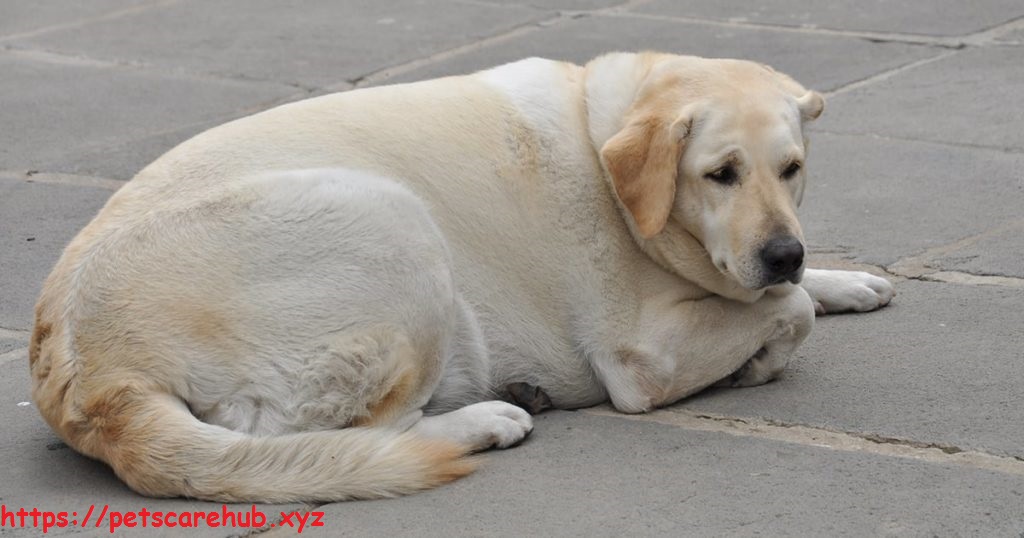
In addition to hormone replacement therapy, dietary changes may also be recommended for dogs with hypothyroidism. A low-fat diet can help manage weight gain associated with the condition, while increasing fiber intake can improve digestion and alleviate constipation which is common in dogs with an underactive thyroid gland.
Regular exercise is also crucial for managing symptoms of hypothyroidism in dogs. However, it is important to note that excessive exercise can lead to fatigue in these dogs due to their compromised energy levels.
In some cases, medication and dietary changes may not be enough to manage hypothyroidism in dogs. In these instances, your veterinarian may recommend more specific treatments such as surgery or alternative thyroid hormone supplements.
Since hypothyroidism is a life-long condition, regular monitoring and management of symptoms will be necessary for your dog to live a happy and healthy life. With proper treatment, most dogs with hypothyroidism can still enjoy a good quality of life. If you have any concerns about your dog’s health or suspect they may have hypothyroidism, it is important to consult with your veterinarian for proper diagnosis and treatment options.
Dietary Changes and Supplements for Managing Hypothyroidism
Hypothyroidism is a condition that affects both humans and dogs, where the thyroid gland does not produce enough hormones to regulate various bodily functions. While medication is often necessary for managing hypothyroidism, making dietary changes and incorporating certain supplements into your dog’s routine can also greatly aid in their overall health and well-being. This section will discuss some key dietary changes and supplements that can help manage hypothyroidism in dogs.
- Increase Iodine Intake:
Iodine is an essential nutrient for the production of thyroid hormones, so ensuring your dog has enough iodine in their diet is crucial for managing hypothyroidism. Iodized salt is one common source of iodine; however, it may not be suitable for all dogs depending on their health conditions. Other sources of iodine include seaweed, fish and shellfish, dairy products, and eggs. Consult with your veterinarian to determine how much iodine your dog needs in their diet.
- Incorporate Omega-3 Fatty Acids:
Omega-3 fatty acids are known for their anti-inflammatory properties, which can benefit dogs with hypothyroidism as it may reduce inflammation in the thyroid gland. Additionally, omega-3s are important for maintaining healthy skin and coat, as dryness can be a symptom of hypothyroidism. Sources of omega-3s include salmon oil or fish oil supplements specifically formulated for pets.
- Consider L-Carnitine Supplements:
L-carnit ine is an amino acid that helps with the production and utilization of energy in cells. In dogs with hypothyroidism, L-carnitine can help boost energy levels and support weight loss efforts. It is recommended to consult with your veterinarian to determine the appropriate dosage for your dog.
- Feed a Balanced Diet:
Feeding your dog a balanced diet that meets their nutritional needs is essential for managing hypothyroidism. Look for dog food labeled “complete and balanced” or seek out veterinary-approved commercial diets specifically formulated for dogs with hypothyroidism. These diets often contain specific ingredients or supplements that support thyroid health.
- Avoid Certain Foods:
Some foods can interfere with thyroid function or worsen symptoms of hypothyroidism in dogs. These include soy-based products, high-fiber diets, and foods high in goitrogens, which are compounds that can interfere with iodine uptake in the thyroid gland.
- Consider Probiotic Supplements:
Probiotics are beneficial bacteria that can help promote a healthy gut microbiome in dogs. A healthy gut microbiome can aid in digestion and absorption of nutrients from food, which is especially important for dogs with hypothyroidism who may have trouble absorbing essential nutrients.
It’s important to consult with your veterinarian before making any significant dietary changes or adding supplements to your dog’s routine. They can help you determine the appropriate dosage and make recommendations based on your dog’s individual needs.
Supporting Your Dog’s Health: Exercise, Mental Stimulation, and Emotional Well-being
Exercise is an essential component of your dog’s overall health and well-being. Not only does regular exercise help them maintain a healthy weight, but it also has numerous other benefits for their physical, mental, and emotional health. This is especially important for dogs with hypothyroidism as it can greatly impact their energy levels and metabolism.
It’s important to note that the type and duration of exercise should be appropriate for your individual dog based on factors such as their breed, age, and overall health. Consult with your veterinarian before implementing any new exercise routine for your dog.
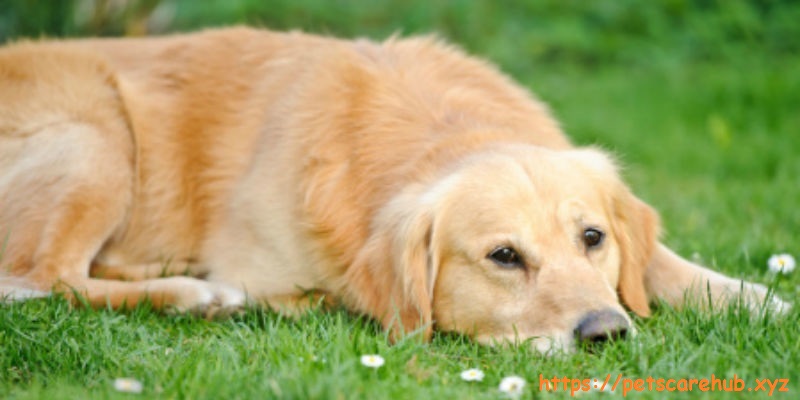
Physical activity is necessary to stimulate a dog’s muscles, bones, and joints. For dogs with hypothyroidism who may experience muscle weakness or joint pain due to low thyroid hormone levels, regular exercise can be beneficial in building strength and improving mobility. Low-impact exercises like walking or swimming are usually recommended for dogs with these conditions.
In addition to strengthening their bodies, physical activity also helps stimulate proper digestion and bowel movements in dogs. Hypothyroidism can slow down a dog’s digestive system and lead to constipation or diarrhea. Exercise can aid in regulating bowel movements by stimulating the gastrointestinal muscles.
Mental stimulation is just as important as physical activity when it comes to supporting the health of your dog with hypothyroidism. Mental stimulation exercises keep your dog’s mind active and engaged, which can prevent boredom-related behaviors like destructive chewing or excessive barking.
Simple activities like hide-and-seek games or teaching them new tricks can help keep your dog mentally stimulated. Puzzle toys and interactive games are also great options to challenge their problem-solving skills and provide mental stimulation.
Emotional well-being is often overlooked but is just as important for your dog’s overall health. Dogs with hypothyroidism may experience changes in mood or behavior due to their hormone imbalance. Providing a stable and loving environment can go a long way in supporting your dog’s emotional well-being.
Make sure your dog has plenty of opportunities for socialization with other dogs and people, which can help improve their mood and reduce feelings of anxiety or loneliness. Regular playtime cuddles, and positive reinforcement training can also help boost their overall emotional well-being.
Conclusion
regular exercise, mental stimulation activities, and emotional support are crucial for maintaining the health of a dog with hypothyroidism. Consult with your veterinarian to determine the best exercise plan for your individual dog, and always pay attention to any changes in behavior or physical abilities that may indicate a need for adjustments in their routine. With proper care and support, your dog can live a happy and healthy life despite their hypothyroidism diagnosis.
Conclusion: Maintaining a Healthy Lifestyle for Your Dog with Hypothyroidism
Hypothyroidism is a common condition in dogs that can significantly impact their overall health and well-being. As responsible pet owners, it is crucial to understand the effects of this condition on your furry friend and how you can support them in living a happy and healthy life despite it.
In this article, we have discussed the various symptoms of hypothyroidism in dogs, its causes, diagnosis, and treatment options. We also delved into the importance of proper nutrition and regular exercise in managing this condition. In this final section, we will provide some practical tips on how to maintain a healthy lifestyle for your dog with hypothyroidism.
- Consult with Your Veterinarian
The first step in ensuring your dog’s well-being is to consult with your veterinarian regularly. It is essential to monitor their thyroid levels through blood tests as directed by your vet. This will help determine if there are any changes or adjustments needed in their medication dosage. Regular check-ups will also allow you to discuss any concerns or questions you may have about your dog’s health.
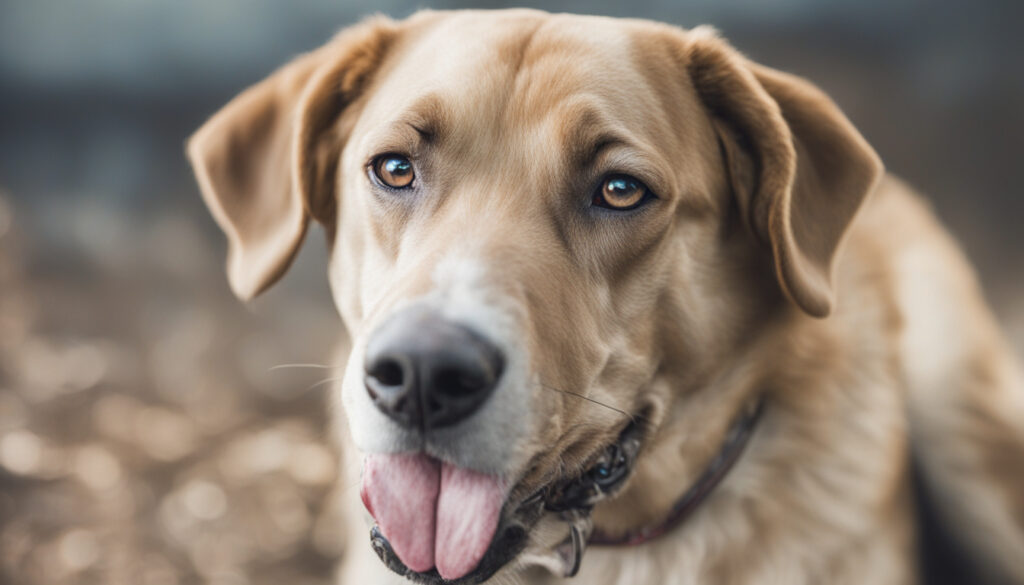
- Stick to Medication Schedule
One of the most critical aspects of managing hypothyroidism in dogs is adhering to their medication schedule strictly. Thyroid hormone replacement therapy is typically given daily and requires consistency for it to be effective. Skipping doses or irregularly administering medication can lead to fluctuations in hormone levels, making it difficult for your dog’s body to regulate itself.
- Feed a Nutritious Diet
Proper nutrition is vital for dogs with hypothyroidism. The right diet can aid in managing their symptoms and improve their overall health. Consult with your veterinarian to determine the best diet for your dog’s specific needs. Feeding a balanced diet that is rich in proteins, healthy fats, and essential vitamins and minerals is crucial for maintaining a healthy weight and supporting their thyroid function.
- Monitor Weight and Exercise Regularly
Weight gain is a common symptom of hypothyroidism in dogs. To maintain a healthy weight, it is essential to monitor your dog’s food intake, provide adequate exercise, and avoid overfeeding treats or table scraps. Regular exercise not only helps keep your dog at a healthy weight but also supports their overall physical and mental well-being.
- Provide Supplements If Needed
In some cases, your veterinarian may recommend adding supplements to support your dog’s thyroid function or manage their symptoms. These may include Omega-3 fatty acids, pro-biotics, or specific vitamins and minerals such as Vitamin E or selenium. Always consult with your vet before giving any supplements to ensure they are appropriate for your dog’s needs.
- Keep an Eye on Other Health Issues
Dogs with hypothyroidism may also be more prone to other health issues, such as skin problems or joint pain. Keeping an eye out for these issues and addressing them promptly can help improve your dog’s quality of life. Regular grooming and daily joint care supplements can also contribute to managing these potential complications.
Conclusion
Hypothyroidism is a manageable condition that should not hinder your dog from living a happy and healthy life. By following the tips outlined in this article, you can ensure that your furry friend receives the care they need to thrive despite their diagnosis. Remember to consult with your veterinarian regularly, maintain a consistent medication schedule, provide a nutritious diet, and encourage regular exercise for optimal well-being. With proper management and love, your dog with hypothyroidism can live a long and fulfilling life by your side.
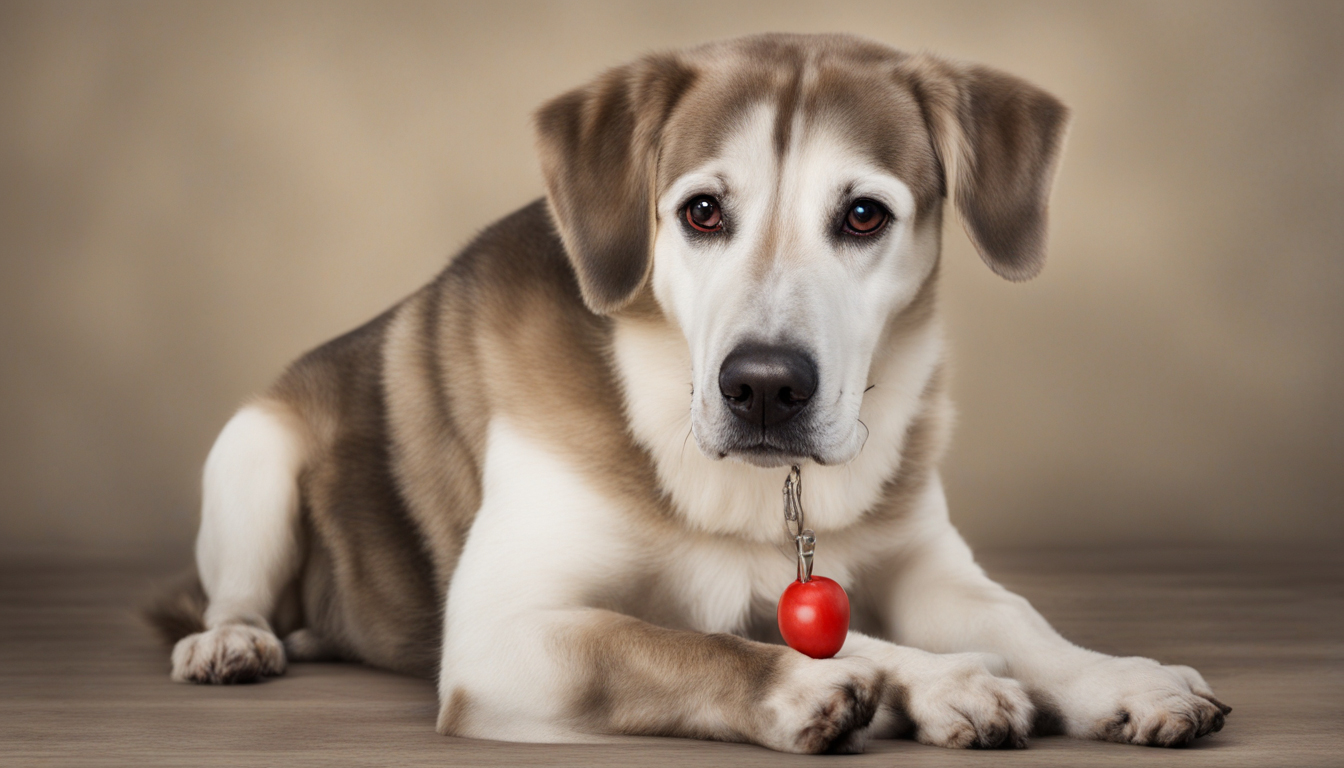
1 thought on “Hypothyroidism can make your dog tired or make them gain weight”